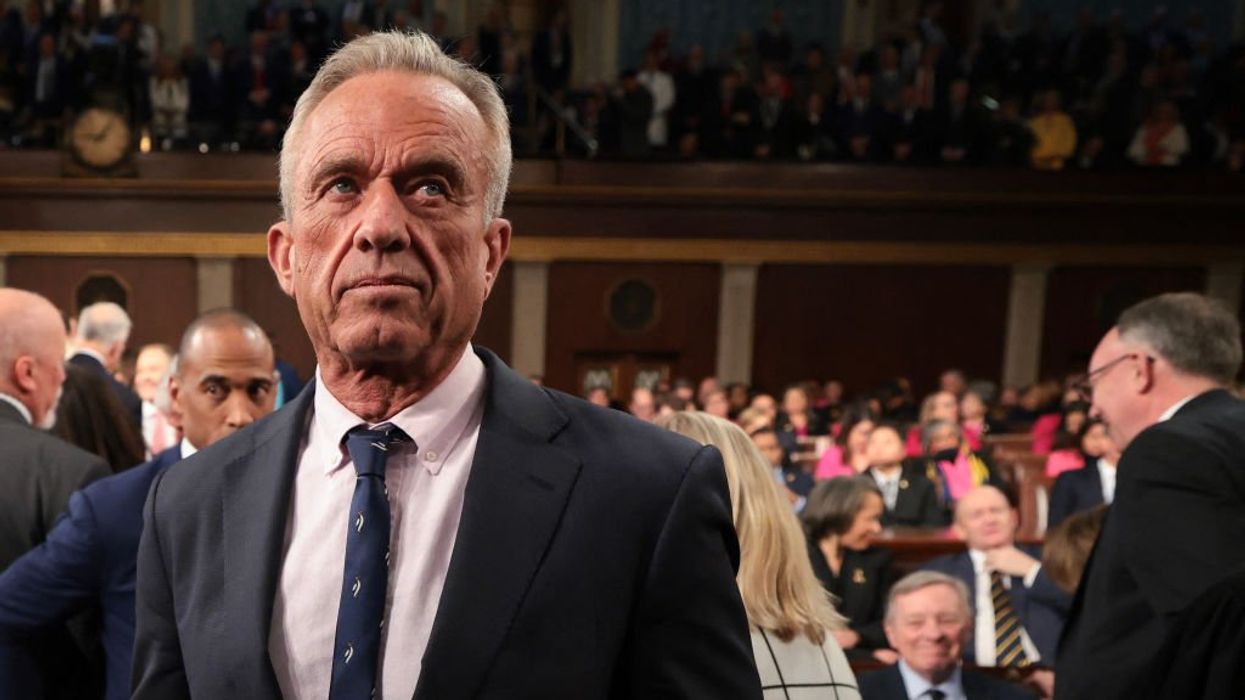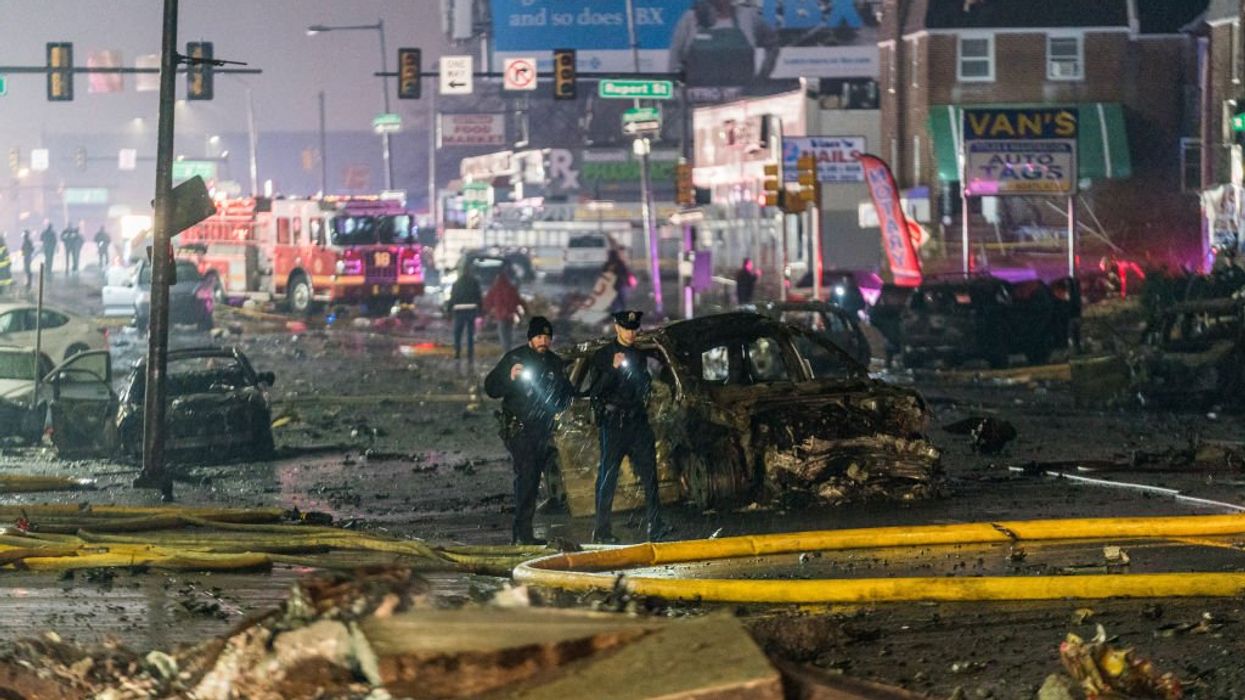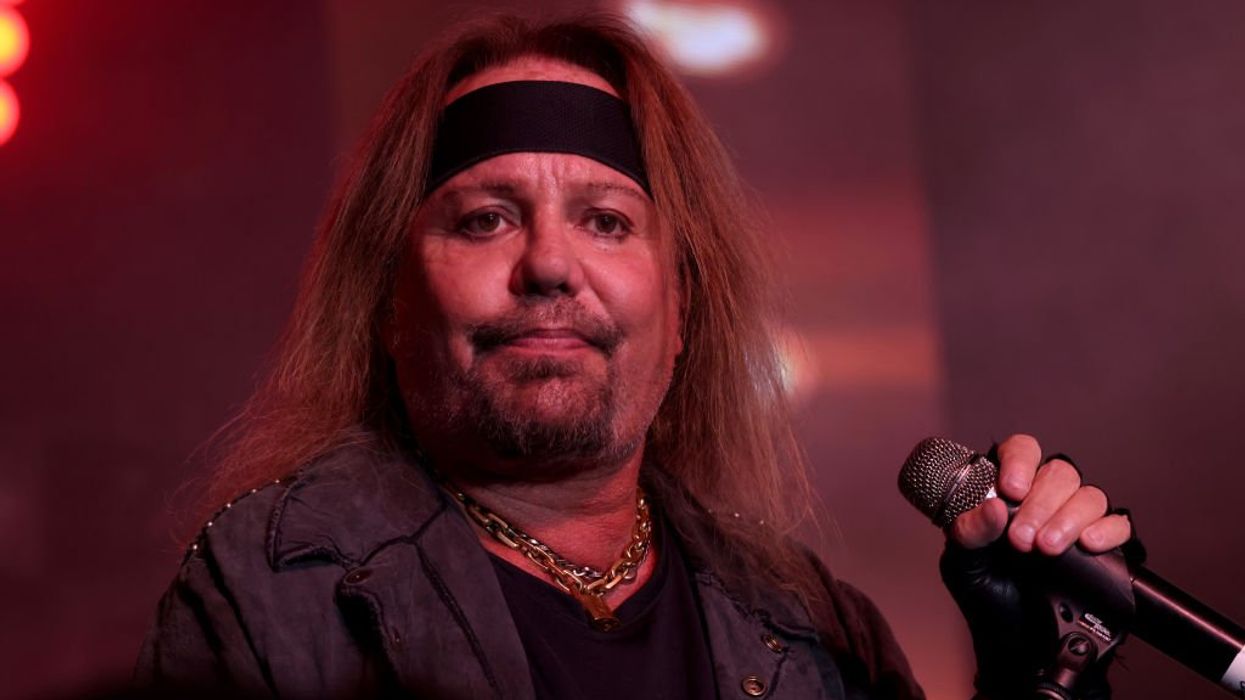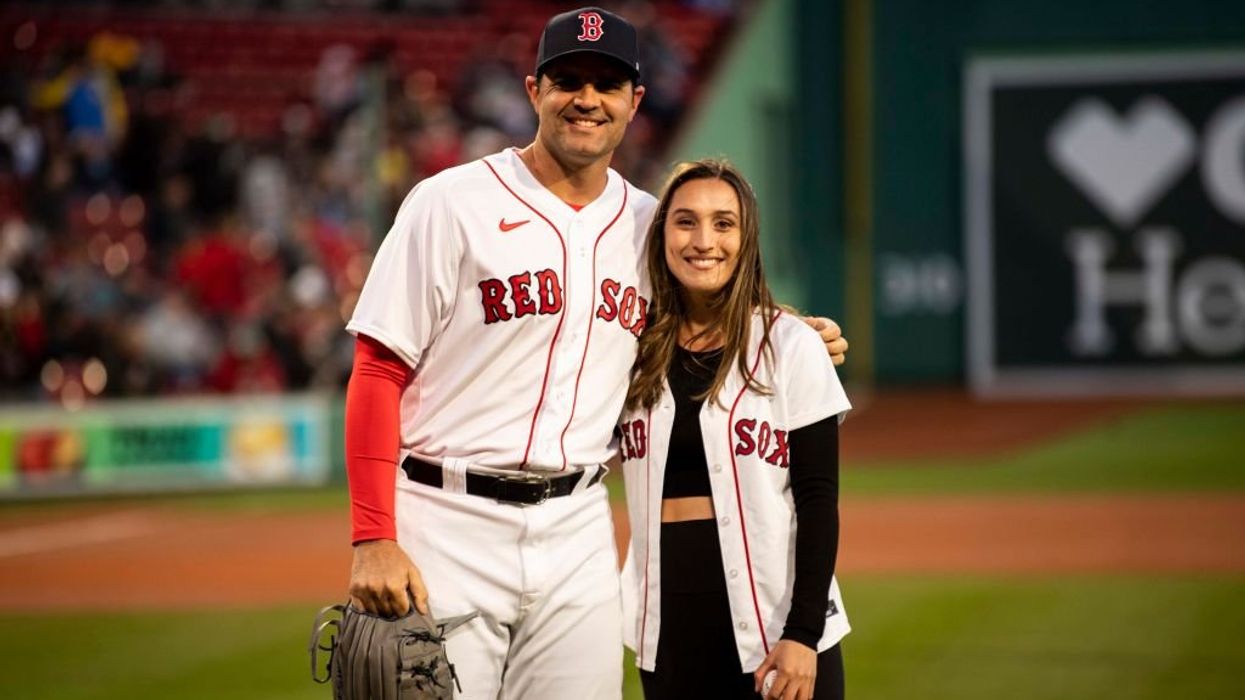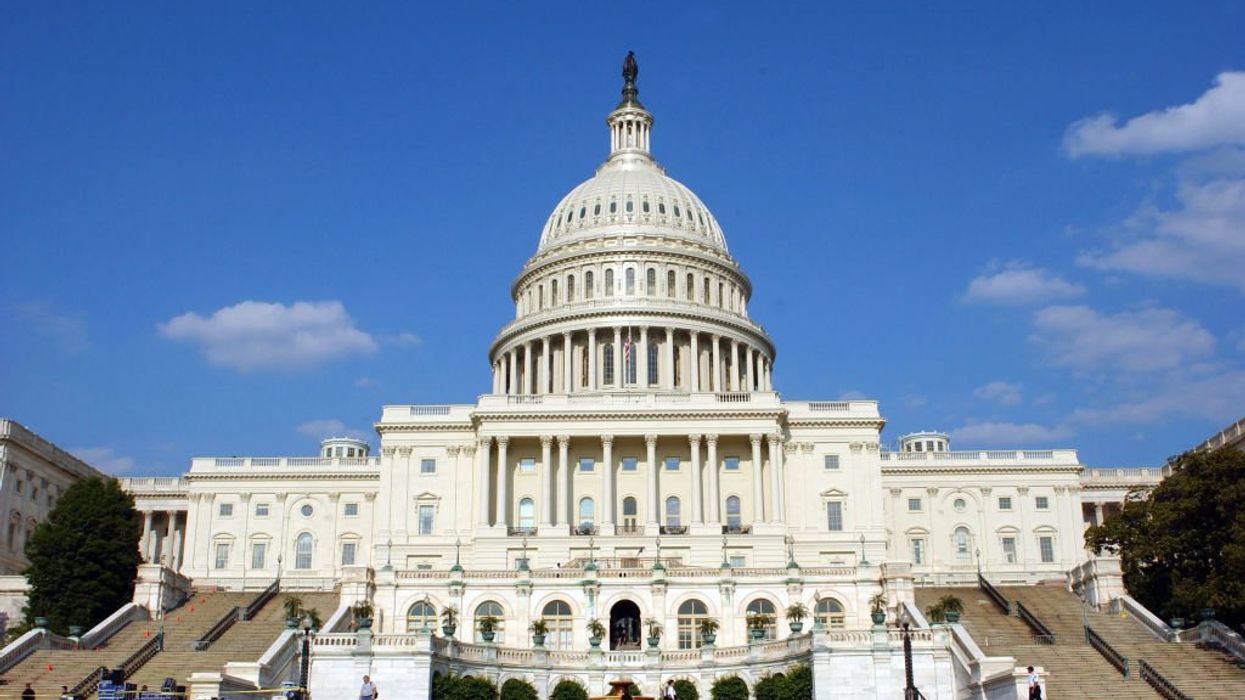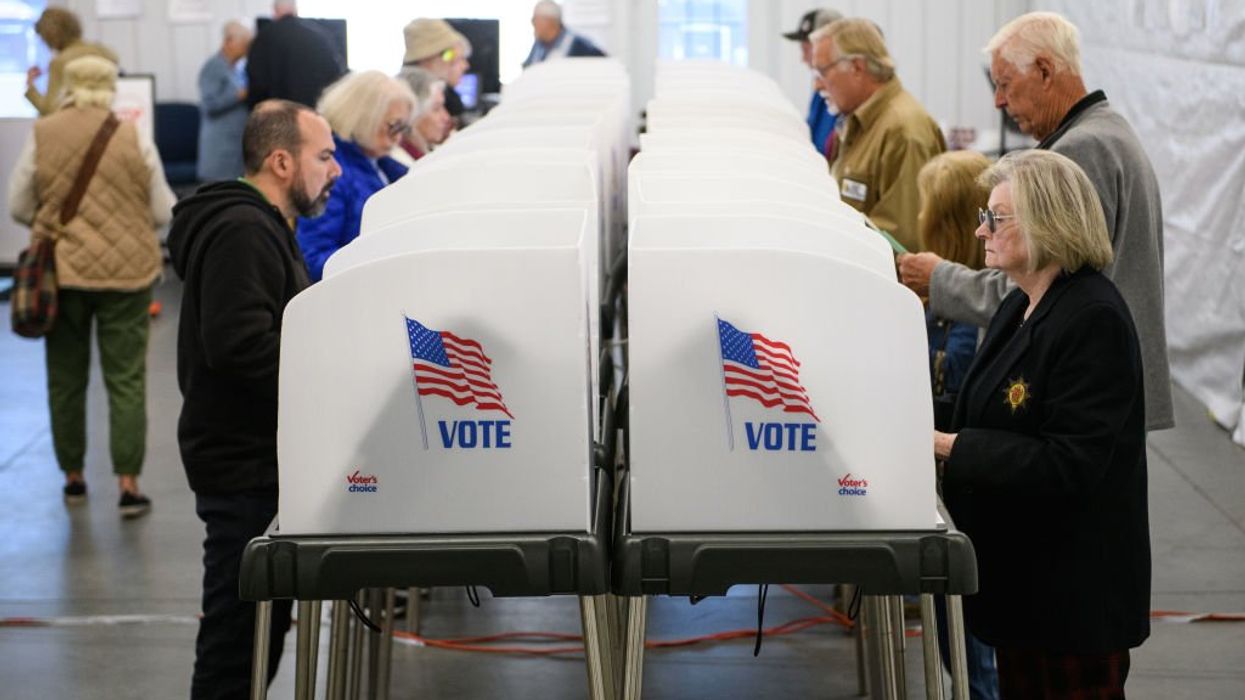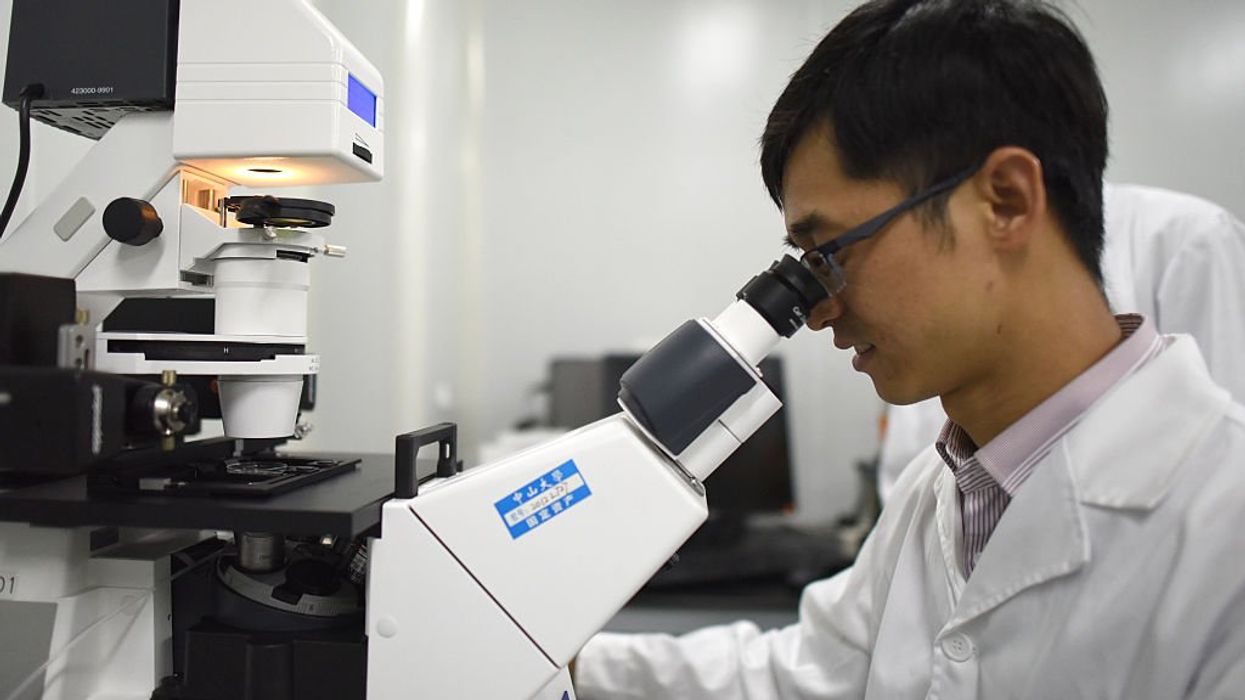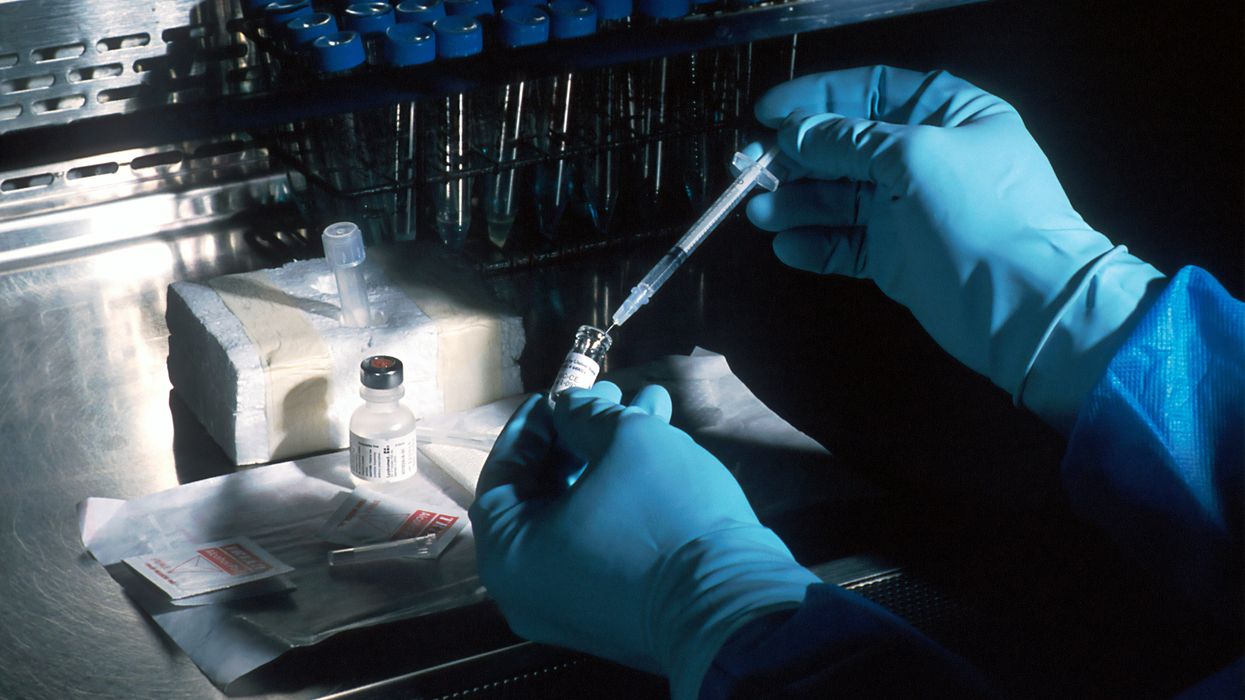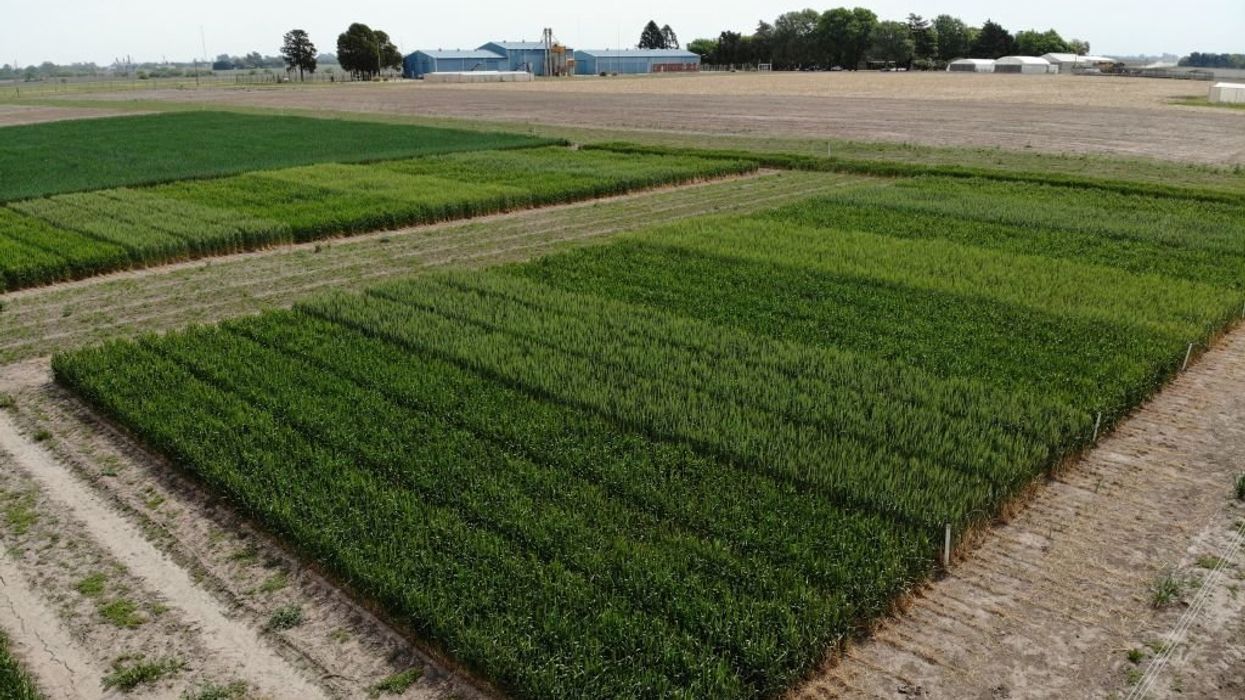Trump’s cabinet is now fully assembled, and the MAGA train is charging ahead at full throttle.
The Trump administration has achieved consecutive victories in the Senate, despite the Democrats' best efforts. Trump’s impressive cabinet team includes notable figures like RFK Jr., Pete Hegseth, Pam Bondi, Kristi Noem, Marco Rubio, and many others. The Trump team has been diligently at work, and the past month is filled with stories of their historic accomplishments. In just a few short weeks, Trump and his team have made significant progress toward making America great again, leaving us to anticipate what they will accomplish once they reach their full potential.
We’ve assembled a complete list of all 15 members of Trump’s cabinet, complete with updates that marked the historic senate confirmation process. Read up on the FULL Trump cabinet below:
Secretary of Agriculture

Tom Williams / Contributor | Getty Images
Trump's pick for Secretary of Agriculture is Brooke Rollins, a former White House aide and Texas A&M graduate. If confirmed, Rollins would lead the Department of Agriculture, which is tasked with serving the needs of America's farmers and ranchers, promoting agricultural trade, and protecting forests and other natural resources.
Rollins served as Trump's director of the Domestic Policy Council during his first term and has received much praise from the president-elect. Rollins says she can tackle the many issues plaguing the agricultural sector, touting her small-town, Texas agriculture roots.
Update 3/13/25: On February 13th, Brooke Rollins was overwhelmingly confirmed as Trump’s Secretary of Agriculture in a 72-28 vote.
Secretary of Commerce

ANGELA WEISS / Contributor | Getty Images
Trump tapped Howard Lutnick, the CEO of Cantor Fitzgerald as his pick for Secretary of Commerce, which would head the Department of Commerce responsible for aiding the creation of economic growth and opportunity conditions. Lutnick narrowly beat Linda McMahon and Robert Lighthizer, the other likely candidates for the job. Lutnick, who has served as the co-chair of Trump’s presidential transition team since August, will be responsible for spearheading Trump's tariff agenda, which has drummed up much hype and speculation over the last several weeks.
Update 2/18/25: Howard Lutnick was confirmed as the new Secretary of Commerce on February 18, 2025. Lutnick was confirmed by a vote of 51-45.
Secretary of Defense

John Lamparski / Contributor | Getty Images
Pete Hegseth's nomination to head the Department of Defense Army has caused a flurry among Pentagon officials and Congressmembers alike. A former National Guard major and Fox News host, Hegseth has drawn praise from some on the right over his plans to "de-wokeify" the military. Others question if he has the command experience to take charge of the world's most powerful military. These concerns, along with allegations relating to his personal life, leave many questioning whether Hegsteh has enough support to be confirmed.
Update: Hegseth's hearing is scheduled for 9:30 AM on January 14th.
Update: After a lengthy grilling by the Senate on Tuesday morning, Hegseth emerged from the Capitol Building relatively unscathed. He managed to keep a cool head while under fire over his comments regarding the role of women in the military. Hegseth stayed true to his earlier promises to return standards in the military to valuing merit over diversity and inclusion. Hegseth also maintained his innocence in multiple allegations of sexual assault and excessive drinking, commenting, “I’m not a perfect person but redemption is real.”
Update 1/24/25: On Friday, January 24th, Pete Hegseth narrowly clinched the nomination for defense secretary, requiring a tie-breaking vote from Vice President J.D. Vance. The confirmation was a surprise to many, as it was widely speculated that Hegseth did not have enough support in the Senate to win the confirmation.
Secretary of Education

Bloomberg / Contributor | Getty Images
Trump named Linda McMahon, the co-chair of his transition team and former World Wrestling Entertainment executive, as his Secretary of Education. McMahon served as Trump's Small Business Administration administrator during his first term and is currently the board chair of the America First Policy Institute, which has been described as a "White House in Waiting." McMahon would be tasked with overseeing Trump's campaign promise to significantly downsize the Department of Education and return many of its powers to the states.
Update 3/3/25: On Monday, March 3rd, the Senate confirmed Linda McMahon as the newest —and possibly the last— Secretary of Education. McMahon clenched the vote 51-45.
Secretary of Energy

Andy Cross / Contributor | Getty Images
Trump picked Chris Wright, an oil and gas CEO, as his Secretary of Energy. Wright is an advocate for fossil fuels, having founded Liberty Energy, an oilfield service firm in Denver, Colorado. Wright is opposed to the global warming alarmists and views fossil fuels as a means of providing cheap, reliable energy that can raise people from poverty.
Update: Wright's hearing is scheduled for 10:00 AM on January 15th.
Update: The future of American energy looks bright under Chris Wright. During his Senate confirmation on Wednesday morning, Wright pushed for an America-first energy policy and promised to “drill, baby, drill.” Wright promised to free America from foreign energy by making full use of American natural resources, including oil, coal, and natural gas. Despite being in full favor of fossil fuels, Wright maintains a subtle view of climate change and is an enthusiastic supporter of some clean energy solutions, such as geothermal and nuclear.
Update 2/2/25: On Sunday, February 2nd, Chris Wright was confirmed to lead Trump’s Department of Energy. The Colorado CEO received 59 votes in favor and has sworn to “unleash a golden era of American energy dominance.”
Secretary of Health and Human Services

Michael M. Santiago / Staff | Getty Images
The Department of Health and Human Services is in charge of protecting the health of Americans, a task that spans from food safety to disease outbreaks. Organizations that fall under the HHS's umbrella include the NIH, FDA, and CDC.
Trump has tapped RKF Jr. to be his Secretary of Health and Human Services. Kennedy Jr. has infused Trump's entire campaign with a raised awareness of the failing health of many Americans and the systemic incompetency of the federal agencies tasked with protecting them. RFK Jr. has made it his mission to "Make America Healthy Again," a task that requires a fundamental shake-up of American food and medicine. This sort of approach has left many skeptics concerned that Kennedy Jr. will go too far too fast, leaving many to question if he has the support to be confirmed by the Senate.
Update 2/13/25: To the joy of many MAHA fans, RFK Jr. narrowly won his Senate confirmation on February 13th, winning just 52 votes. Kentucky Senator Mitch McConnell was the only Republican who opposed RFK Jr., and he was also the lone Republican to vote against Hegseth and Gabbard.
Secretary of Homeland Security

JIM WATSON / Contributor | Getty Images
Trump tapped South Dakota Governor Kristi Noem to be his Secretary of Homeland Security. Noem has been a strong advocate for a secure border, which seems to be her primary area of concern. Along with Trump's new "Border Czar," Tom Homan, Noem is expected to come down hard on the southern border. The Department of Homeland Security has a broad assignment that includes protecting Americans and critical American infrastructure from foreign and domestic threats, protecting our borders, responding to natural disasters, and more.
Update: Noem's hearing is scheduled for 9:00 AM on January 15th.
Update 1/25/25: On Saturday, January 25th, Kristi Noem was officially confirmed to lead President Trump’s Department of Homeland Security. Noem won by a narrow margin, securing 59 votes in her favor.
Secretary of Housing and Urban Development

Chip Somodevilla / Staff | Getty Images
Trump picked former NFL player turned politician Scott Turner as Secretary of Housing and Urban Development, an office responsible for policies and programs that address housing needs, promote community development, and enforce housing laws. Turner worked under Republican Congressman Duncan Hunter before being elected to the Texas House in 2013, and he also ran Trump's White House Opportunity and Revitalization Council during his first term.
Update: Turner’s hearing is scheduled for 10:00 AM on January 16th.
Update: Scott Turner said during his confirmation hearing that his goal as Trump’s Secretary of Housing and Urban Development (HUD) secretary will be to help people get off government assistance and become more self-sustainable. The former NFL veteran-turned-Texas state legislator also said he will advance and expand policies heralded by the incoming Trump administration, such as the first Trump administration initiative called "Opportunity Zones," low-income areas with tax incentives to attract investors to transform communities. When questioned by Democrats, particularly Senator Elizabeth Warren, about whether he would cut spending on government social and welfare programs, Turner vowed to review them on a case-by-case basis.
Update 2/5/25: Scott Turner was confirmed as Secretary of Housing and Urban Development on Wednesday, February 5th, with a 55-44 vote.
Secretary of the Interior

Steven Ferdman / Contributor | Getty Images
Trump's pick for the Secretary of the Interior is North Dakota Governor, Doug Burgum. The Department of the Interior is America's primary conservation agency, protecting America's natural resources and managing the National Parks. Gov. Burgum has tremendous experience managing North Dakota's oil-rich reserves and Native American populations, both key aspects of The Department of the Interior. Burgam is also known for his harsh criticism of federal oversight and is expected to aid Trump in slashing regulations.
Update: Burgum’s hearing is scheduled for 10:00 AM on January 16th.
Update 1/30/25: On Thursday, January 30th, former North Dakota Governor, Doug Burgum was confirmed as President Trump’s Secretary of the Interior. The former governor and CEO received bipartisan support in his final confirmation vote, coming in 80-17 in his favor.
Attorney General

Andrew Harnik / Staff | Getty Images
Trump tapped Pam Bondi to lead his Department of Justice as the Attorney General of the United States. This comes after his first pick, Matt Gaetz, withdrew his name after facing an upstream confirmation battle due to a flurry of allegations. Bondi has a long track record as a prosecutor and a former attorney general in Florida and worked with Trump's team of defense lawyers fighting back against the impeachment charges levied against him. As Attorney General, if confirmed, Boni will play a key role in Trump's campaign promise to crack down on systemic corruption in the federal bureaucracy.
Update: Bondi is scheduled for two hearings, one at 9:30 AM on January 15th, and another at 10:15 AM on January 16th.
Update: Wednesday morning Pam Bondi emerged victorious from her first of two Senate confirmation hearings. Bondi faced a morning of intense questioning from Senate Democrats who drilled her on issues surrounding her allegiance to Trump and her stance concerning the 2020 election results. Bondi promised to de-politicize the DoJ and swore that people would not be targeted based on political affiliation, a welcome but unfortunately necessary pledge. She also stated that she would advise Trump to pardon January 6th protesters on a “case-by-case basis.”
Update: Pam Bondi fields questions about her loyalty to Donald Trump, her opinion about the 2020 election, and whether she can remain impartial as Attorney General during her second day of confirmation hearings on January 16th, 2025. Democrats, especially Senator Adam Schiff, pressed Bondi over whether she would comply with Trump’s pressure should he ask her to prosecute his political opponents, like Senator Liz Cheney. The former Florida attorney general called out Democrats’ line of questioning, pointing to their complicity in the Biden administration’s weaponization of government.
Update 2/4/25: On February 4th, the Senate officially confirmed Pam Bondi, the former Florida Attorney General. Bondi narrowly passed the confirmation with a 54-46 vote and has sworn to de-politicize the Department of Justice.
Secretary of Labor

Bill Clark / Contributor | Getty Images
Trump named Republican Representative Lori Chavez-DeRemer as his Secretary of Labor. Despite being a Republican, Chaves-DeRemer's pro-union stance has many conservatives on high alert. If confirmed, Chavez-DeRemer will oversee federal programs aimed at protecting and bolstering the American workforce.
Update 3/7/25: While not officially confirmed, Lori Chavez-DeRemer has enough Senate support that her confirmation as the next Secretary of the Department of Labor is all but guaranteed.
Secretary of State

Chip Somodevilla / Staff | Getty Images
Trump picked Florida Senator Marco Rubio as his Secretary of State. Rubio, who famously ran against Trump in the 2016 Republican primaries, has been a longtime spokesperson about the threats posed by foreign adversaries, predominantly China.
Update: Rubio's hearing is scheduled for 10:00 AM on January 15th.
Update: The Florida Senator won bipartisan support during his Senate confirmation hearing Wednesday morning. Rubio took a strong anti-China stance, highlighting America’s growing dependence on Chinese goods. He also advocated for Taiwan, arguing that the U.S. needs to prevent an oncoming “cataclysmic military intervention.”
Update 1/20/25: Marco Rubio was the first of Trump’s cabinet picks to be confirmed on Monday, January 20th. Rubio was considered the least controversial of Trump’s picks, which proved true after receiving 99 out of 100 Senate votes (the one absent vote came from Ohio, as Vice President Vance’s replacement, Jon Husted, hadn’t yet been sworn in).
Secretary of Transportation

Mark Wilson / Staff | Getty Images
Trump named former Wisconsin representative Sean Duffy as his next Secretary of Transportation. Both Rep. Duffy and his wife Rachel Campos-Duffy are hosts on Fox. A staunch pro-Trump advocate, Duffy will take over the Department of Transportation in the aftermath of Pete Buttiegeg's biggest failures during his term, such as his response—or lack thereof—to the East Palestine train derailment, in-flight incidents on Boeing aircraft, and much more. Moreover, traffic deaths and accidents are high, and the introduction of new technologies like self-driving cars and the increase of electric vehicles poses never-before-seen challenges Duffy will have to tackle.
Update: Duffy’s hearing is scheduled for 10:00 AM on January 15th.
Update: Former Wisconsin representative Sean Duffy had a smooth Senate confirmation hearing Wednesday morning. Duffy spent some time discussing recent air travel mishaps and commented that Boeing needed some “tough love” after multiple recent instances of their aircraft exhibiting concerning malfunctions. Duffy also received some praise from Wisconsin Senator Baldwin who expressed confidence in Duffy’s abilities.
Update 1/28/25: Sean Duffy was officially confirmed on Tuesday, January 28th, after a 77-22 vote. Duffy has a daunting task ahead of him: cleaning up after his predecessor's cascade of infrastructure and transportation failures.
Secretary of the Treasury

DOMINIC GWINN / Contributor | Getty Images
Trump tapped billionaire Scott Bessent to be his Secretary of the Treasury. Scott will face tremendous challenges coming into office, as he will oversee the massive tax cuts promised by Trump and his team. He will also advise the president on how to implement the tariffs against Canada, Mexico, and China that Trump has promised in recent weeks.
Update: Bessent’s hearing is scheduled for 10:30 AM on January 16th.
Update 1/27/25: Scott Bessent was confirmed as the treasury secretary on Monday, January 27th. The former Wall Street Investor won 68 of the 29 Senate votes and is expected to be instrumental in implementing Trump’s new tariffs.
Secretary of Veterans Affairs

Alex Wong / Staff | Getty Images
Former congressman Doug Collins was tapped to lead Trump's Department of Veterans Affairs, which is responsible for taking care of our veterans and their families. This includes offering benefits such as pensions, education, disability compensation, loans, and much more. Collins is a veteran himself who served in Iraq and is still an Air Force Reserve chaplain, which gives him valuable insight into the needs of veterans.
Update: Collins’ hearing is scheduled for an unannounced time on January 21st.
Update 1/21/25: Doug Collins was confirmed as Trump’s pick to lead the Department of Veterans Affairs. The Senate vote, held on February 4th, went 77-23 in the former Georgia representative’s favor.



